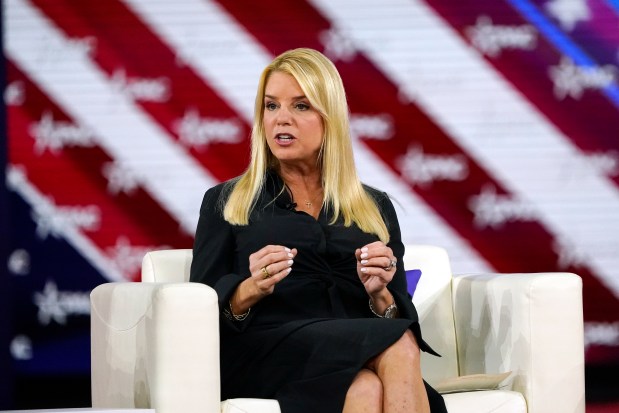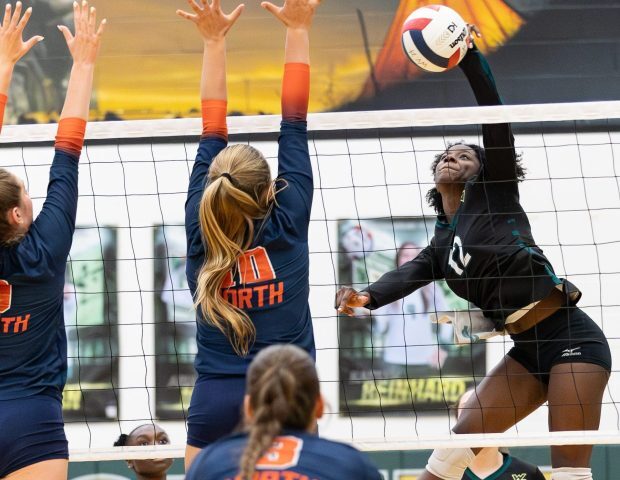Fresh off a major victory that made Chicago the largest city in the nation to independently abolish a lower minimum wage for tipped workers, the national One Fair Wage campaign is looking for similar success in Springfield.
Members of the organization stood with supportive Illinois lawmakers outside the state Capitol on Tuesday to unveil proposed legislation that would phase out the subminimum wage for restaurant staff and other tipped workers throughout Illinois over two years.
The Chicago City Council’s vote last October to end the subminimum wage was a big win for Mayor Brandon Johnson’s progressive agenda. The prospects for a similar victory statewide are uncertain.
While the state legislature and governor’s office are firmly in Democratic hands, the General Assembly doesn’t have nearly the rate of progressive lawmakers as Chicago’s City Council, and Republicans and even some Democrats outside Chicago are more likely to oppose a measure that many small businesses will argue hurts them. And even as the legislation was being introduced, restaurant industry groups were lining up to resist the measure that will likely become a major issue during the spring legislative session.
A spokesperson for Democratic Gov. J.B. Pritzker, who signed a measure raising the state’s minimum wage in 2019 but allowed a lower tipped wage to continue, declined to comment on the bill.
At the Springfield news conference announcing the legislation, Deputy House Majority Leader Elizabeth “Lisa” Hernandez, of Cicero, said eliminating the subminimum wage is the right thing to do for the state’s economy, especially as businesses look to retain workers.
“Soon we will face a situation where workers in the restaurant industry can drive a few blocks into the city of Chicago and receive not only higher wages but also guarantee wages on their paycheck,” Hernandez, who also chairs the Illinois Democratic Party, said. “They won’t have to worry about tip credits or other uncertainties with their checks. That puts suburban businesses at a huge disadvantage.”
According to One Fair Wage, more than 200,000 Illinois service industry workers make a base wage that’s less than the state’s minimum wage, which on Jan. 1 went up to $14 an hour for workers 18 and over. Tipped workers can earn a base rate that’s 60% of that minimum, or $8.40 an hour.
Advocates of making the minimum wage the same for all workers argue it will put more money into the pockets of women and people of color, who they say are negatively impacted by biases in the tipped wage system. Women in the restaurant industry, for example, must tolerate harassment from customers to avoid jeopardizing tips, according to One Fair Wage.
“All of this got so much worse with the (COVID-19) pandemic,” Saru Jayaraman, co-founder and president of the group, said Tuesday. “Workers’ reported tips went down, harassment went up, and they started leaving the industry en masse.”
The proposed legislation, which backers say they plan to file this week, was met with opposition from some of the same forces that unsuccessfully lobbied to keep a tipped minimum wage in Chicago.
The Illinois Restaurant Association said in a statement that the measure “will hurt tipped workers, restaurants, and customers across the entire state of Illinois when we should be doing what we can to help them.”
Small businesses may be especially hard hit by the increased labor costs, the restaurant association said.
In addition to phasing out the lower minimum wage for tipped workers, the proposed legislation would require that service charges, the fees many restaurants started tacking on to customers’ bills during the pandemic, go to workers, rather than employers, according to One Fair Wage.
It would also eliminate the lower minimum wage for some younger workers and provide for fines against employers found to be in violation of the law.
Corrine Terrell, a leader and organizer with One Fair Wage, said no one can work for a subminimum wage and support themselves or a family.
“Where is it going to put us if we continue to stay stuck in slavery-minded terms versus moving forward?” Terrell said.
The restaurant association fought Chicago’s tipped wage ordinance last year but eventually dropped the opposition after agreeing to a deal with a longer ramp-up period.
Seven states already require that all workers, including those who receive tips, be paid the prevailing minimum wage.
The Chicago measure shrinks the gap between tipped wage and the city’s minimum wage over five years, with parity expected in July 2028.
Chicago’s minimum wage is currently $15.80 per hour for businesses with more than 20 workers and $15 for those with fewer workers.
Gorner reported from Springfield.




